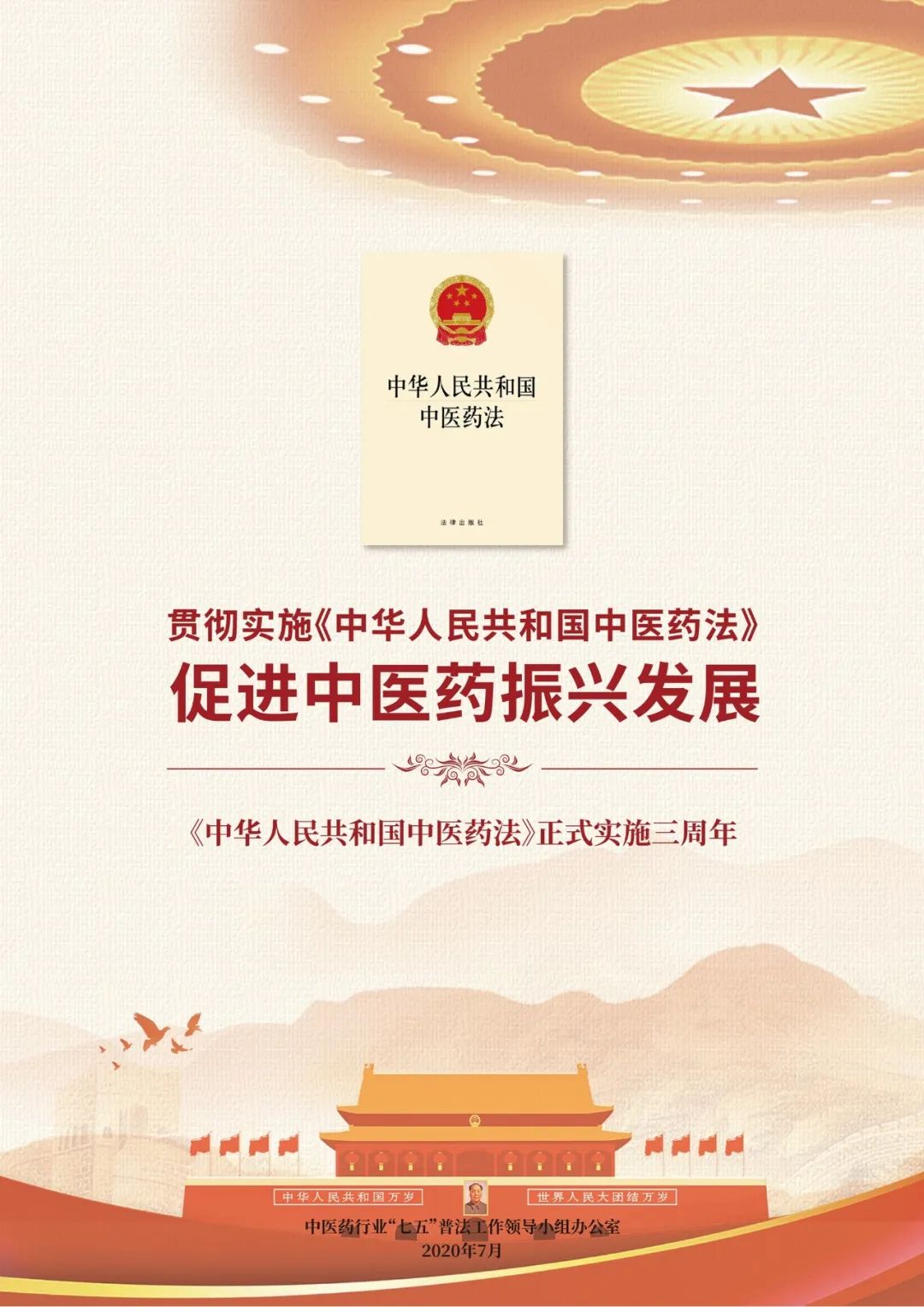Ginseng, also known as Ren Shen, Gui Gai, Tu Jing (the essence of the earth), and Yi Shan Shen (most of which are now cultivated at home), etc.
Li Shizhen stated: Ginseng, after many years of growth, has roots resembling a human shape, possessing spirit, hence it is called Ginseng, the divine herb. Its grass grows in the shade, hence it is called Gui Gai; among the five ginseng types, the yellow color belongs to the earth, which tonifies the spleen and stomach, nourishes yin blood, hence it is also known as Huang Shen and Xue Shen; it is named Tu Jing and Di Jing due to its acquisition of the essence of the earth.
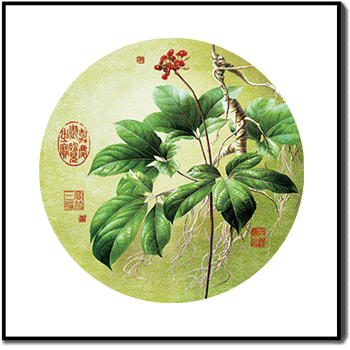
Ginseng is a perennial herbaceous plant of the Araliaceae family. The dried root of cultivated ginseng is generally referred to as garden ginseng, while wild ginseng is called mountain ginseng or wild mountain ginseng, primarily produced in the three northeastern provinces of China and the Korean Peninsula.
【Preparation of Ginseng】
Raw Sun-Dried Ginseng: Fresh garden ginseng is trimmed of small roots, sulfur-fumigated, and then sun-dried;
Whole Root Raw Sun-Dried Ginseng: Dried without removing the roots;
White Ginseng: Dried roots and root hairs are cut and dried;
Red Ginseng: Raw sun-dried ginseng or small roots are steamed for 2-3 hours, then dried or baked.
Raw sun-dried ginseng or red ginseng is usually peeled, moistened, sliced thinly, dried, or crushed for use, and can also be powdered for consumption.
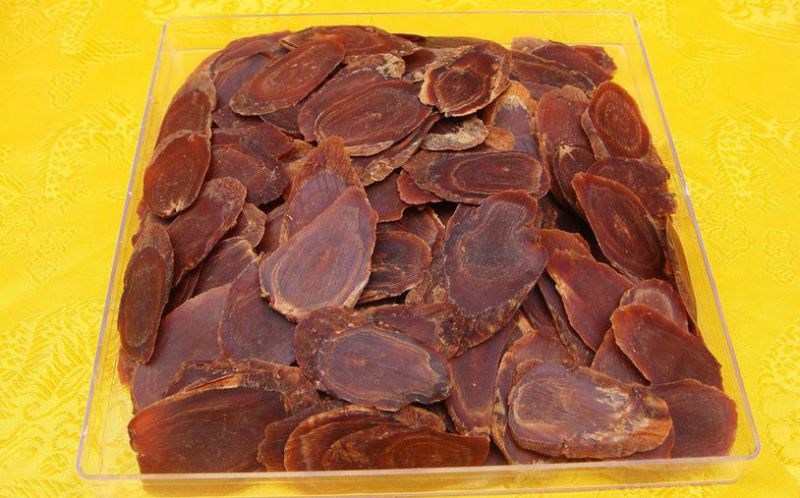
The image shows red ginseng.
【Effects of Ginseng】
1. Greatly Tonifies Yuan Qi — Qi deficiency leading to collapse, weak pulse;
Ginseng is sweet in flavor and slightly warm in nature, capable of greatly tonifying Yuan Qi, having a strengthening effect on the body, and is the primary herb for treating internal injuries from deficiency; it is effective for symptoms of extreme depletion of Yuan Qi due to significant blood loss, excessive sweating, or severe vomiting and diarrhea, and should be used in large doses for acute conditions; otherwise, it cannot reverse the dire situation.
2. Tonifies Spleen and Benefits Lung — Spleen Qi deficiency, Lung Qi deficiency;
Deficiency of Spleen and Stomach Qi leads to fatigue, lack of energy, poor appetite, vomiting, and diarrhea; prolonged Lung deficiency leads to Lung and Kidney Qi deficiency, resulting in shortness of breath, wheezing, fatigue, spontaneous sweating, and weak pulse. Ginseng benefits Lung Qi and can treat Lung weakness and Qi deficiency.
3. Generates Fluids and Alleviates Thirst — Thirst due to both Qi and fluid deficiency, diabetes;
Diabetes, with upper, middle, and lower types, the middle type is characterized by thirst, commonly seen in diabetic patients, often combined with Tian Hua Fen (Trichosanthes Root), Mai Dong (Ophiopogon), and Zhi Mu (Anemarrhena) for treatment;
4. Calms the Spirit and Enhances Intelligence — A series of symptoms caused by the loss of nourishment to the spirit due to dual deficiency of Qi and blood;
Can treat insomnia with vivid dreams, palpitations, and forgetfulness caused by dual deficiency of Qi and blood; using ginseng alone has a certain effect.
5. Tonifies Qi and Nourishes Blood — Qi deficiency, blood deficiency, or dual deficiency of Qi and blood;
Qi and blood can mutually generate each other, and the body can nourish yin blood through Qi tonification, thus treating blood deficiency or dual deficiency of Qi and blood.
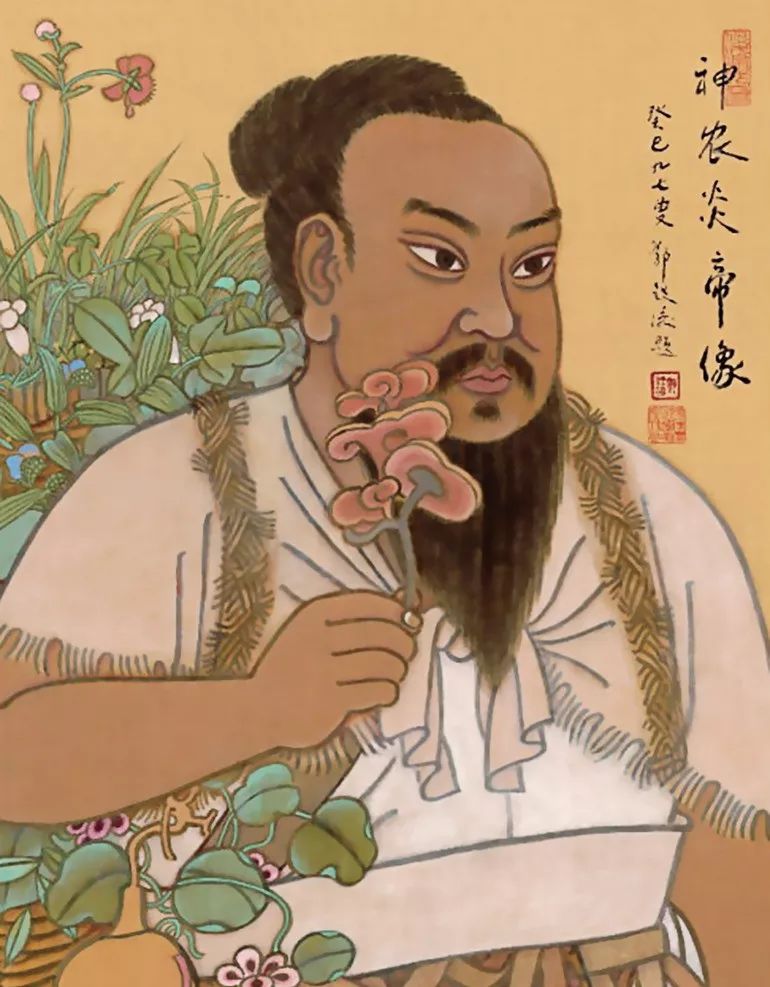
【Effects of Different Types of Ginseng】
Wild Mountain Ginseng — Greater tonifying power, the longer the growth period, the better;
Garden Ginseng — Weaker tonifying power, suitable for general conditions, mainly produced in Jilin, Liaoning, and Korea; (Note: Garden ginseng is divided into raw sun-dried ginseng and red ginseng: Raw sun-dried ginseng is used for various diseases caused by Qi and Yin deficiency; red ginseng is slightly warm in nature, suitable for patients with Qi deficiency and Yang deficiency.)
Ginseng Root Hairs — Weaker than garden ginseng, used when Qi and blood are weak but not severely so, or for children.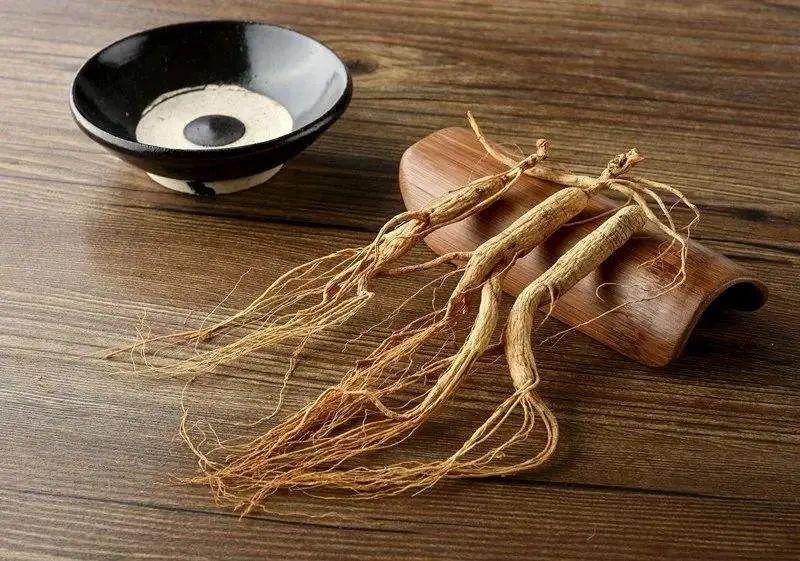
【Precautions for Using Ginseng】
1. Ginseng is sweet, warm, and tonifying, which can assist fire, cause stagnation, and restrain evil; it should be avoided or used cautiously in all cases of excess heat and stagnation;
2. Ginseng is incompatible with Li Lu (Veratrum) and should not be used with Li Lu or Soapberry;
3. Ginseng is wary of Wu Ling Zhi (Flying Squirrel Feces);
4. When taking ginseng, it is not advisable to consume carrots or drink tea, as it may affect the efficacy;
5. Many practitioners believe it is not advisable to use with Lai Fu Zi (Radish Seed), as Lai Fu Zi descends Qi and counteracts the Qi tonifying effect of ginseng. However, in clinical practice, if symptoms such as chest fullness due to Qi deficiency cough and wheezing, Qi deficiency diarrhea, or gastric prolapse occur, using ginseng with Lai Fu Zi can both tonify Qi and alleviate symptoms of abdominal fullness, while preventing the exacerbation of chest fullness and abdominal distension caused by ginseng. If abdominal fullness and Qi stagnation occur during ginseng use, Lai Fu Zi can also be used to resolve it effectively;
6. Ginseng tonifies Qi and assists fire; during use, it can be combined with Tian Dong (Asparagus) and Sheng Di (Rehmannia) for cooling and moistening; to prevent symptoms of stagnation such as abdominal distension and chest tightness, some herbs that regulate Qi and relieve distension, such as Chen Pi (Dried Tangerine Peel) and Xiang Fu (Cyperus), can be added;
7. Ginseng may cause adverse reactions such as rashes, itching, headaches, dizziness, elevated body temperature, hypertension, and bleeding; among these, bleeding is a characteristic of acute ginseng poisoning.
8. Ginseng should only be used when there is a suitable indication of Qi deficiency; misuse, prolonged use, or high doses often lead to adverse reactions, ranging from mild symptoms like loss of appetite, abdominal fullness, or body swelling, to severe symptoms such as hypertension, gum bleeding, nasal bleeding, or even gastric bleeding or stroke.
【Identification of Ginseng: (For Reference Only)】
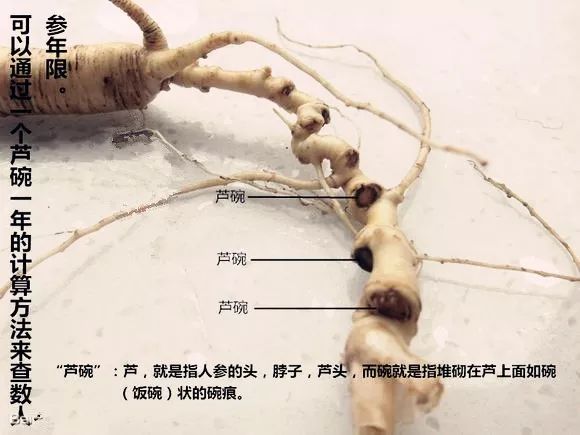
1. The age of ginseng can be determined by the number of “root scars”; ginseng is a perennial herbaceous plant, and every autumn and winter, the above-ground part withers, leaving a stem scar. The more scars, the older the ginseng; it is difficult to counterfeit;
2. A whole ginseng root should appear plump, with fewer legs and an even skin color, indicating good quality; if it is thin, has many blemishes, or has many roots, the quality is not very good;
3. For sliced ginseng identification: First, observe the cross-section, which should be yellowish-white and powdery, with distinct brown rings; if the ginseng is pale white, it may have been sulfur-fumigated or insufficient in content; Second, look for scattered brown spots next to the ring; the more spots, the stronger the flavor, indicating better quality; Third, taste it, it should have a bitter and sweet aftertaste; if it tastes sour, it may contain sulfur, and if it tastes sweet, it may contain sugar.
【Source: Dongguan Traditional Chinese Medicine Hospital, Author: Wang Wenhui, Department of Preventive Medicine】

